To be at our best, the majority of us require seven to nine hours of sleep every night. That is the optimal amount of time required to recharge, repair, and revitalize your spirit, mind, and body. Sleep is beneficial for you, and this is great news if you enjoy winding down in bed. Getting the right amount of sleep is believed to enhance your immune function and also help with mental health, memory, metabolism, emotional well-being, and learning. For most people, getting enough sleep is a lot easier to say than it is to do.
It is assumed that between 50 to 70 million adults in the United States have sleep disorders. About thirty-five percent of Americans say that their quality of sleep is either fair or poor. Sleep experts accentuate the importance of initiating good habits at nighttime. If you find it hard to get a good night’s sleep, you’re not alone, but you can try these ten ways to get more sleep.
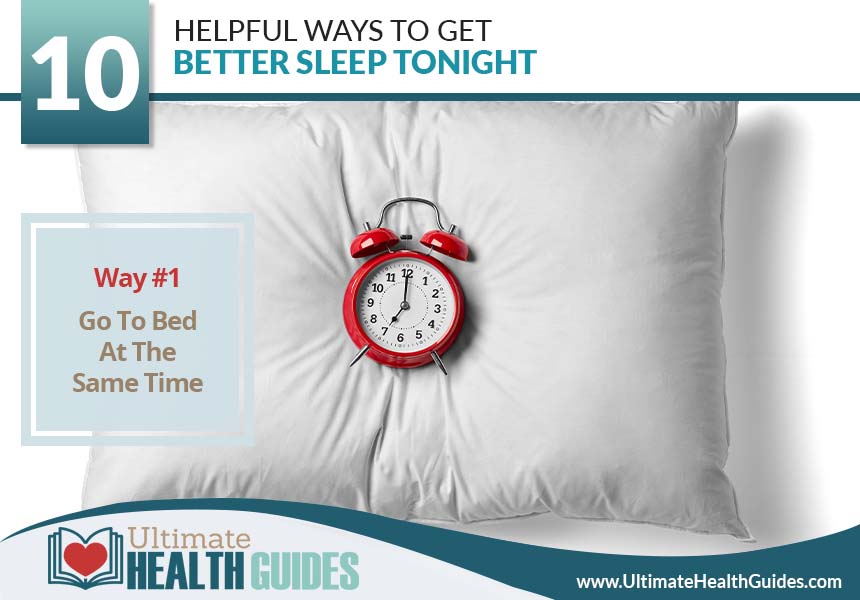
1Go To Bed At The Same Time
The regulation of your sleep-wake cycle is mostly controlled by your circadian rhythm or your body’s internal clock. This internal clock lets your body know when to wake up and get ready for the day’s end. Melatonin impacts it because it gets its signal from the amount of light in your surroundings. It is ideal to go to bed every night at the same time so your body can have a regular sleep-wake cycle and find its natural rhythm.
Many people can throw their circadian clock off if they don’t prioritize this. Your body won’t be able to adjust to a set bedtime if you’re continually changing the time you go to bed and wake up. It is best to stay on schedule, even on the weekends, to keep your circadian rhythm. To improve your sleep, be sure to go to bed at the same time every night and get up at the same time every day.
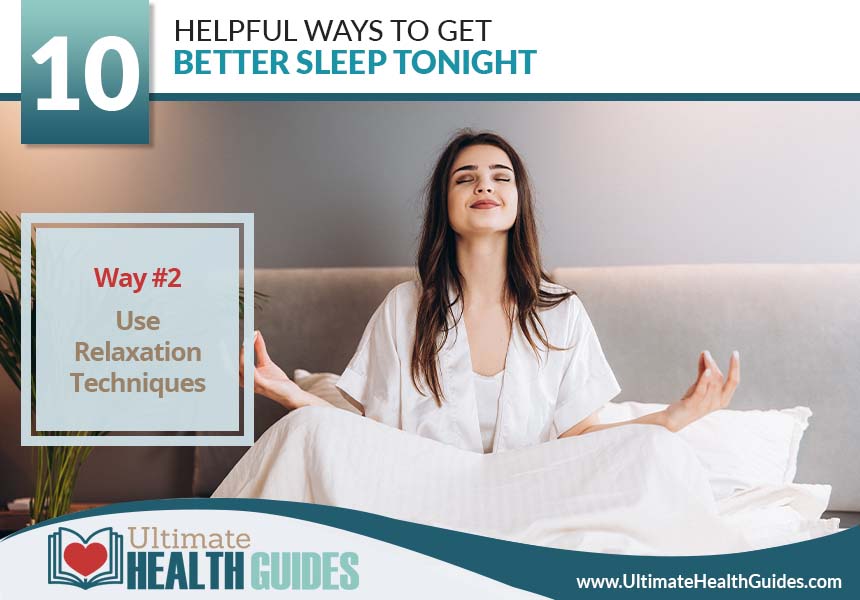
2Use Relaxation Techniques
If you have difficulty falling asleep, try taking deep, slow breaths, and focus on your chest as it rises and falls in a gentle rhythm. In reverse, start counting from one hundred. From your toes, try to focus on relaxing your body, loosen up your legs, and so forth until you are completely relaxed. Sometimes, people have trouble with insomnia, and it can be as much as one out of every five people.
It is hard to determine why some people are not sleeping well. To help you fall asleep quicker and get more restful sleep, try to change your sleep habits. Use some relaxation strategies.
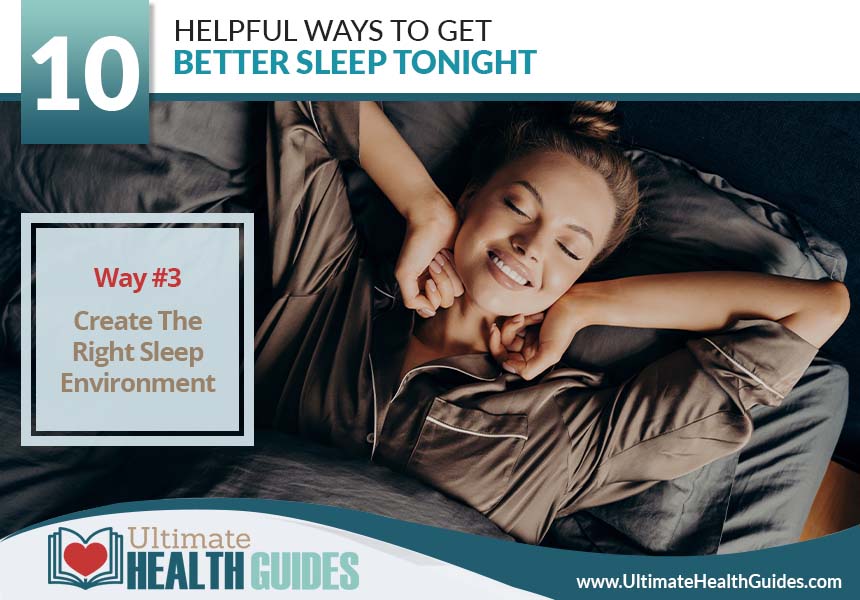
3Create The Right Sleep Environment
We can’t stress enough the value of your bedroom condition to getting the quality of sleep you need. Your bedroom should ideally be your haven for a restful, sound, and restorative sleep. Most bedroom environments are not conducive to a good night’s sleep; they are either too bright, noisy, or cluttered. Sleep is a sensory encounter.
You need to take note of all five of your senses if you want to create an ideal sleep environment. These include sound, smell, sight, and touch. Your bedroom should be dark and cold. You can use a mask or blackout shades to make it darker because light can make you feel alert. You’ll want to regulate the temperature so that it doesn’t get too hot and wake you up through the night.
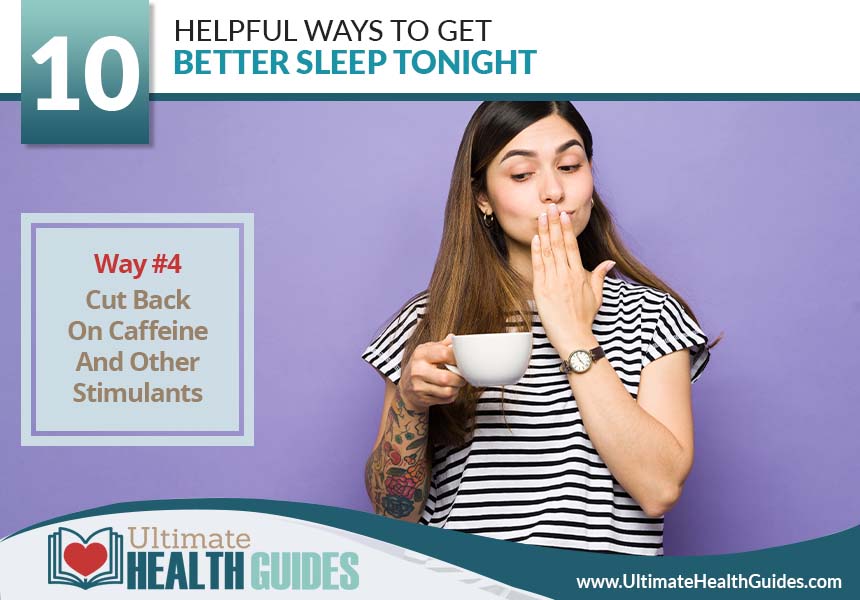
4Cut Back On Caffeine And Other Stimulants
Refrain from drinking stimulants and caffeine. Try to avoid consuming coffee and other sources of caffeine a few hours before bedtime, as they remain active in your system for several hours. Cigarettes contain nicotine, which is also a stimulant and has a similar effect, so to improve your sleep, you’ll need to cut down as much as possible. Even if you consume caffeine in the early afternoon or evening, you can still feel the effects. Your sleep can be disrupted by caffeine.
Obviously, the result of caffeine can make it difficult for you to go to sleep. A study found that the timing of your circadian rhythm can be delayed by caffeine. The effects of these will reduce the amount of time you sleep. The amount of deep sleep that you get can also be affected by caffeine.
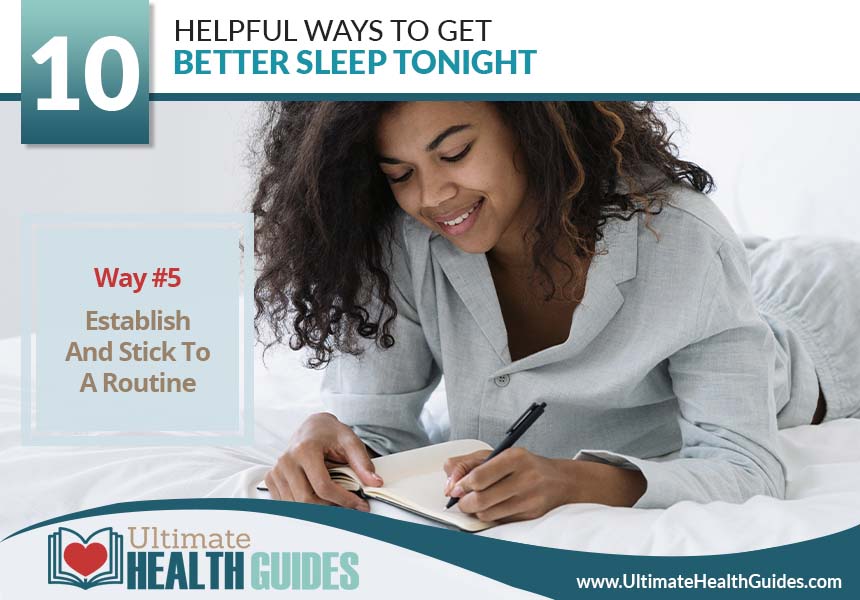
5Establish And Stick To A Routine
Initiate a regimen. About an hour before bedtime, start to wind down and relax, and write down your to-do list the next day to avoid thinking about it all night long. You will enhance the quality of your sleep when you stay consistent. You’re more likely to fall asleep and stay asleep until the next day when you practice good “sleep hygiene.” How important is it to keep a daily regimen for our overall health?
Come to find out, the body hunger for consistency. The body’s various systems can anticipate and prepare for events when we have regular daily routines. The closer it is to the time we wake up, the more alert we become naturally. In order to process our food more efficiently, the digestive system activates in anticipation of regular meal times. Before bedtime, we begin to relax and get sleepy.
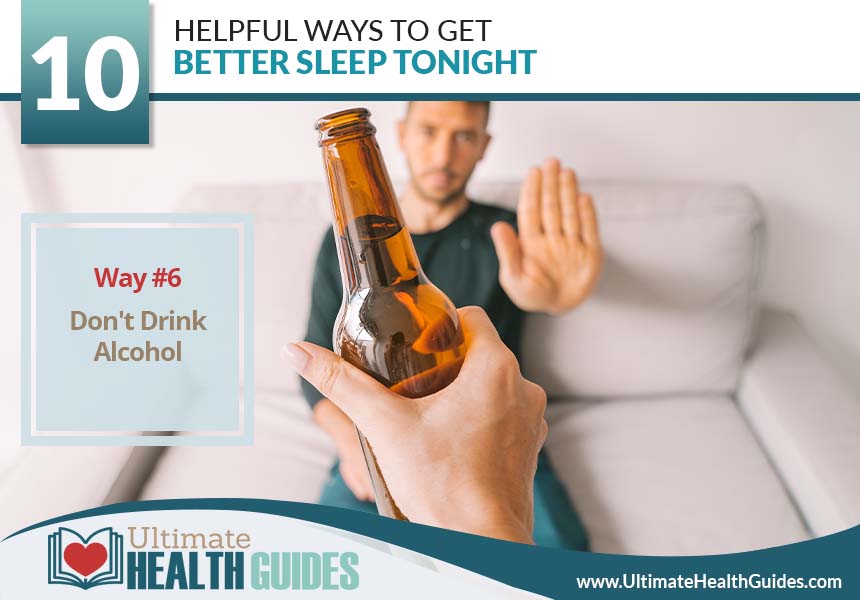
6Don’t Drink Alcohol
Alcohol consumption before bed is connected to delta activity, which is slow-wave sleep patterns. This is the type of sleep that permits learning and memory development. Simultaneously, another type of brain pattern, called alpha activity, is switched on. When you are quietly resting and not when you’re asleep, the alpha brain pattern activity occurs. Your restorative sleep may be inhibited after the consumption of alcohol because it affects both the alpha and delta activity in the brain.
Generally, your body is aware that nighttime is for sleeping and not for bathroom trips. This means that your bladder has been put into hibernation for the night by the body. However, alcohol is a diuretic that can interrupt your usual sleep pattern by making you go for more. Although, at first, it is easier to drift off after a couple of drinks, studies have shown that alcohol disturbs the last parts of your sleep. Make an effort to reduce your consumption or stop drinking a couple of hours prior to going to bed.
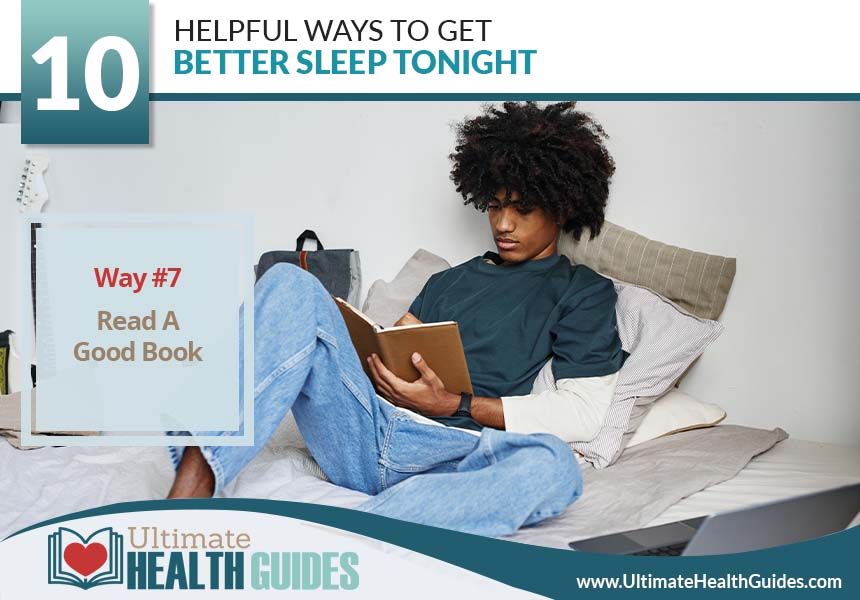
7Read A Good Book
You can lower your stress levels by sixty-eight percent by reading a good book before going to bed. This ranks higher than other nightly routines like going for a walk, drinking tea, or listening to music. One simple thing that you can add to your bedtime routine is to have a good book available for you to read by your bed, as it only takes about six minutes to relax your mind and body significantly.
Reading a good book helps you wind down, soothes your brain, and sends signals to your body that it’s time for bed. Getting into a routine of reading a good book helps you unwind before bedtime instead of looking at a blue light-emitting screen. As long as your e-reader isn’t backlit with harsh light, they are okay.
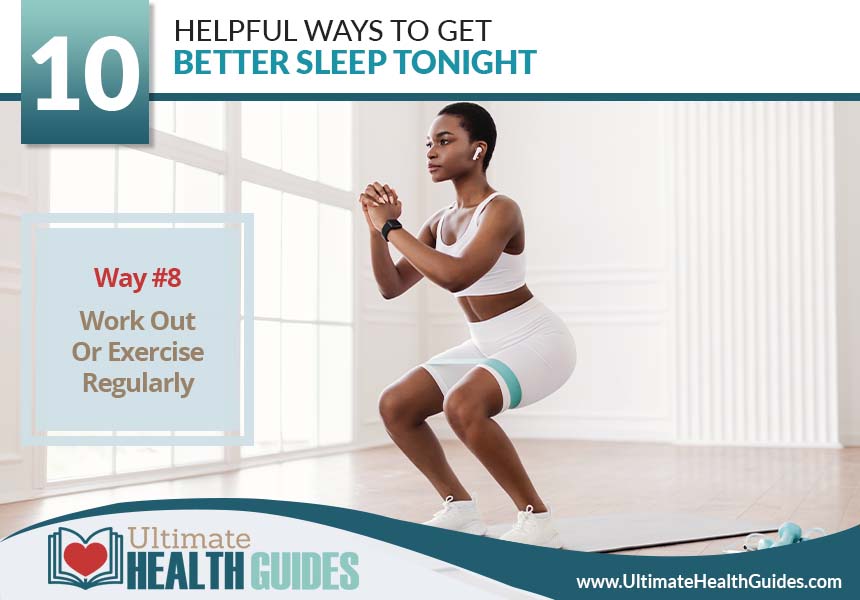
8Work Out Or Exercise Regularly
Another way to get great sleep is by working out. Do you want to fall asleep quicker and feel more rested when you wake up? Then get active! Aerobic exercise like riding a bike or walking for at least ten minutes, particularly when done on a regular basis, can drastically enhance the quality of your sleep. The quality of your sleep, along with the duration of sleep, is improved by physical activity.
Exercise tires you out and lowers stress, and it can support sleep in other ways. You can reset the sleep-wake pattern by exercising early in the morning or in the afternoon, which slightly raises the body’s temperature, and when it drops, it causes sleepiness several hours later. Your body will absorb natural sunlight if you exercise outdoors during the day; this is very beneficial.
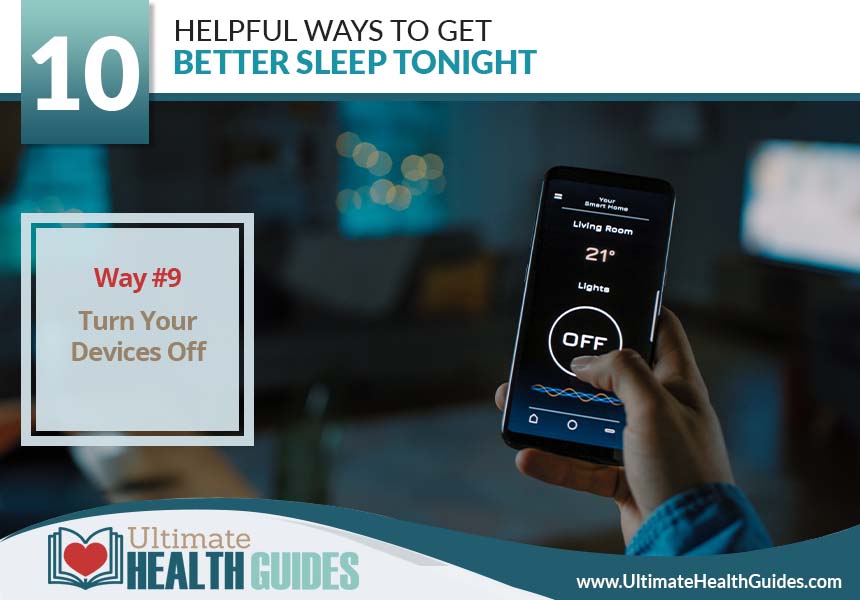
9Turn Your Devices Off
Usually, the main culprit is our smartphones due to the blue light that is emitted that may cause poor sleep; however, televisions and even tablets can do so as well. The release of the sleep-prompting hormone melatonin is suppressed by artificial light exposure between sundown and bedtime. This makes it more challenging to fall asleep because it increases awareness and changes the circadian rhythms to a later time. You can affect your ability to go to sleep by using electronic devices prior to going to bed, as they stimulate you psychologically and physiologically, which negatively affects your sleep.
Turn off your cell phone and your computer. The sleep hormone that tells your body to slow down is melatonin, and the blue light that is emitted from blue light screens interferes with the production of melatonin. Turn off the television at least an hour before your bedtime, and avoid using phones or tablet computers also.
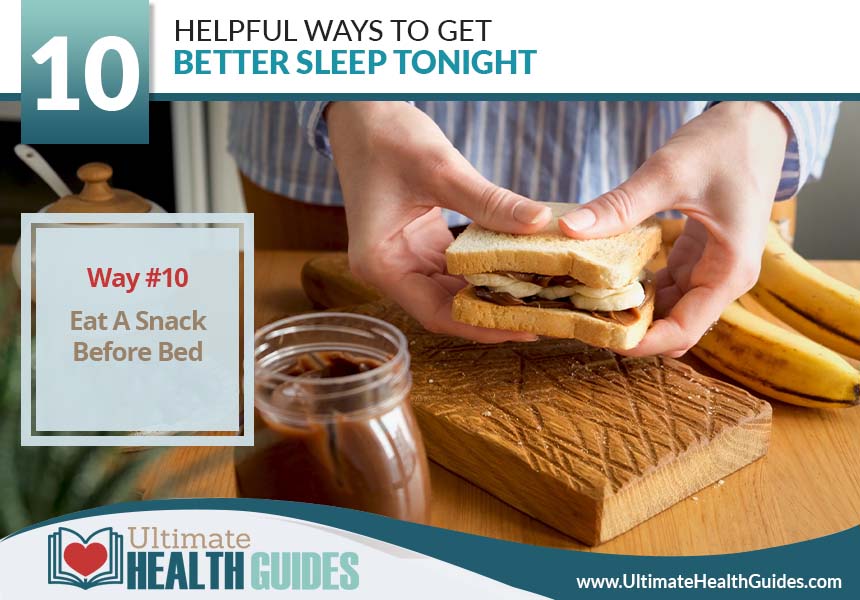
10Eat A Snack Before Bed
It’s okay to eat a snack before bedtime as long as it’s light. Having a snack that doesn’t weigh you down is one with complex carbohydrates. There are tryptophan-rich foods you can combine with those carbs, like bananas, milk, or nuts, to promote good quality sleep. Put some peanut butter on a piece of whole-wheat toast or have a bowl of cereal. Tryptophan is an amino acid that assists the body in creating serotonin, which is a chemical located in the brain that helps in the process of sleeping, so the best bedtime snacks contain tryptophan.
A bedtime snack that is suitable for you should include a small amount of calcium; complex carbs and some protein snacks that are high in sugar need to be avoided. They can cause the fluctuation of your blood sugar levels. To prevent restful sleep and heartburn, stay away from spicy snacks before bedtime.
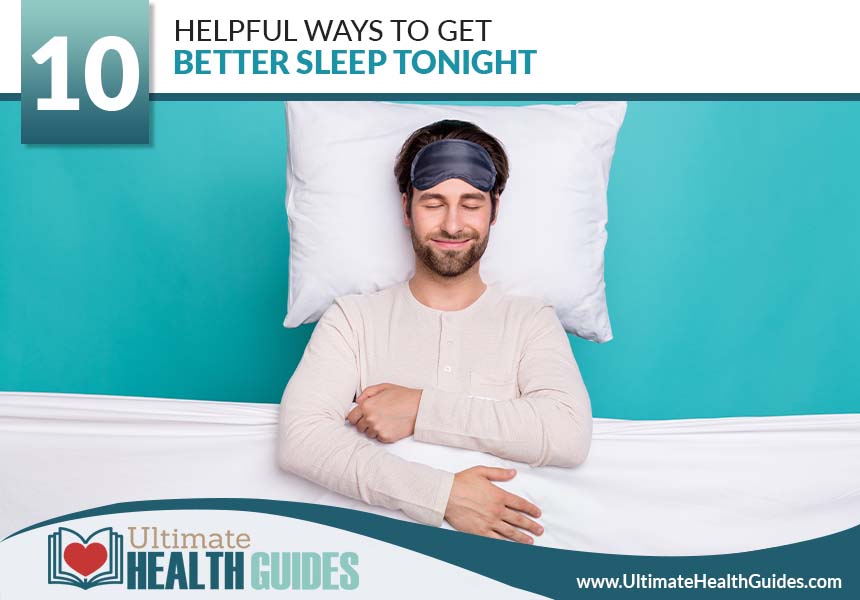
Getting enough sleep is vital. Your body and mind are kept healthy by sleep. Not getting enough sleep can be an issue for everyone, as it can affect their health, work, school performance, mood, sex life, and driving habits. Having enough sleep isn’t just about how many hours of sleep you get; if you want to feel rested when you wake up, getting good quality sleep regularly is important. It is apparent that sleep is beneficial to us.
You don’t have to understand everything that sleep can do for us; however, we know when we are sleep-deprived – we don’t feel so great. But getting the sleep we need helps us feel like there isn’t anything we can’t do. Having enough sleep isn’t just about the number of hours of sleep you get. If you want to feel rested when you wake up, getting good quality sleep on a regular basis is important.














